In AP United States History, the topic of Developing an American Identity explores the process by which the American colonies gradually formed a distinct sense of self that differentiated them from their European origins. This identity was shaped by shared experiences, such as resistance to British policies, cultural and religious movements like the Great Awakening, and the emergence of new political ideologies. As the colonies moved toward independence, these elements coalesced to create a unique American identity that influenced the nation’s foundational values and institutions.
Learning Objectives
By studying Developing an American Identity, you will understand how the colonies gradually formed a distinct national identity through shared experiences, resistance to British rule, and cultural movements like the Great Awakening. You will explore how print media, westward expansion, and emerging political ideologies contributed to this evolving identity. Additionally, you will learn about the key events and ideas that differentiated American identity from European roots, shaping the nation’s values, institutions, and sense of purpose.
Colonial Unity and the American Revolution
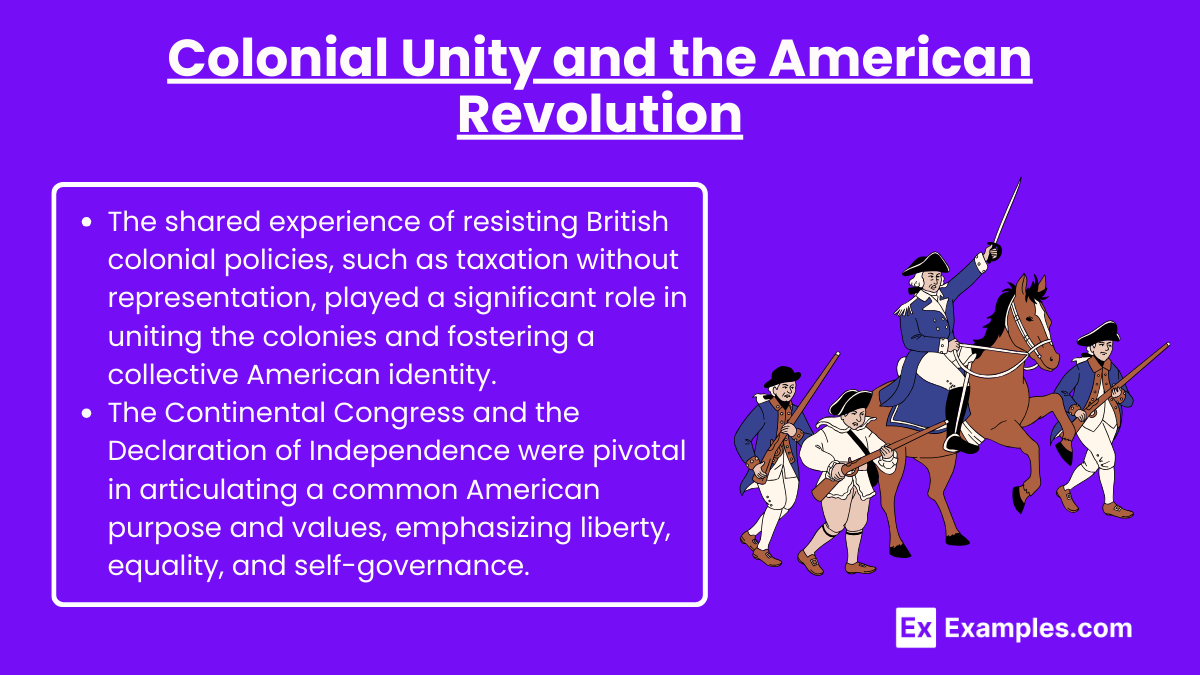
- The shared experience of resisting British colonial policies, such as taxation without representation, played a significant role in uniting the colonies and fostering a collective American identity.
- The Continental Congress and the Declaration of Independence were pivotal in articulating a common American purpose and values, emphasizing liberty, equality, and self-governance.
Cultural and Religious Influences
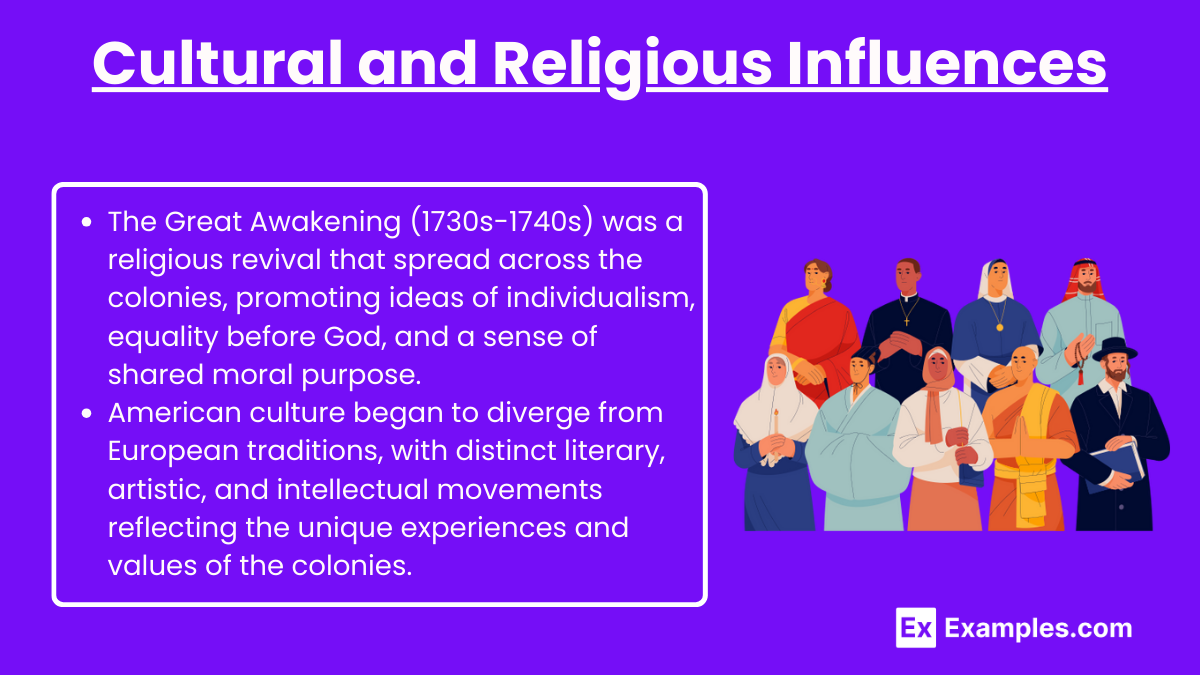
- The Great Awakening (1730s-1740s) was a religious revival that spread across the colonies, promoting ideas of individualism, equality before God, and a sense of shared moral purpose.
- American culture began to diverge from European traditions, with distinct literary, artistic, and intellectual movements reflecting the unique experiences and values of the colonies.
The Role of Print Media
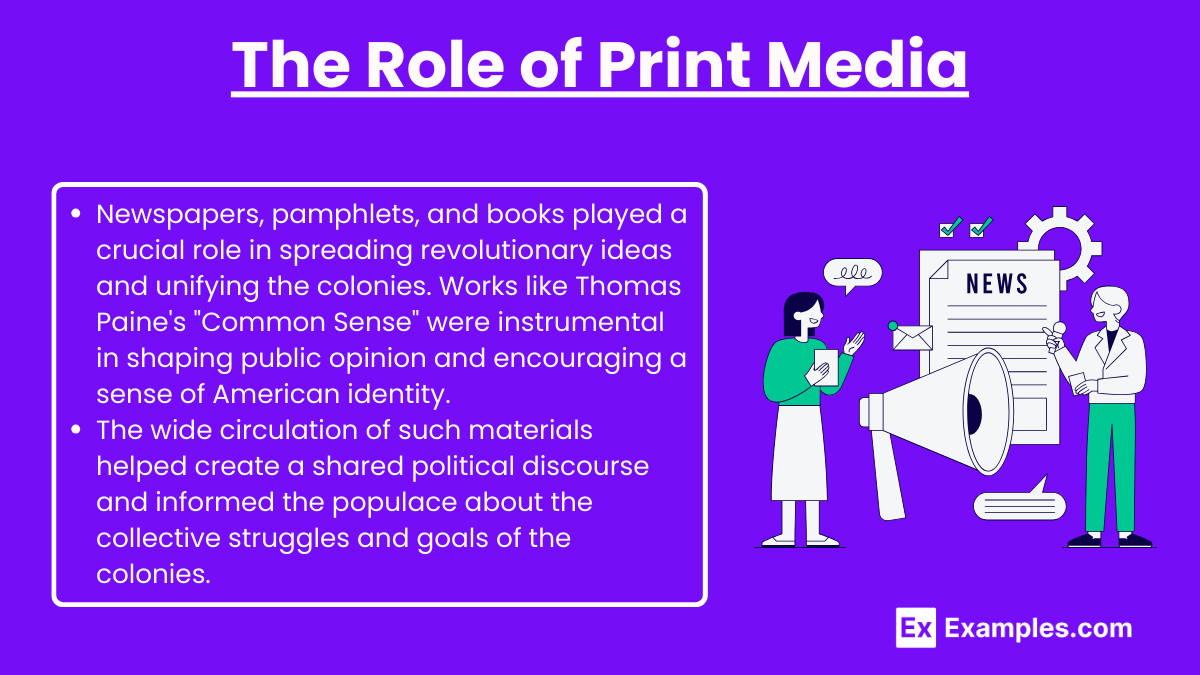
- Newspapers, pamphlets, and books played a crucial role in spreading revolutionary ideas and unifying the colonies. Works like Thomas Paine’s “Common Sense” were instrumental in shaping public opinion and encouraging a sense of American identity.
- The wide circulation of such materials helped create a shared political discourse and informed the populace about the collective struggles and goals of the colonies.
Frontier and Westward Expansion
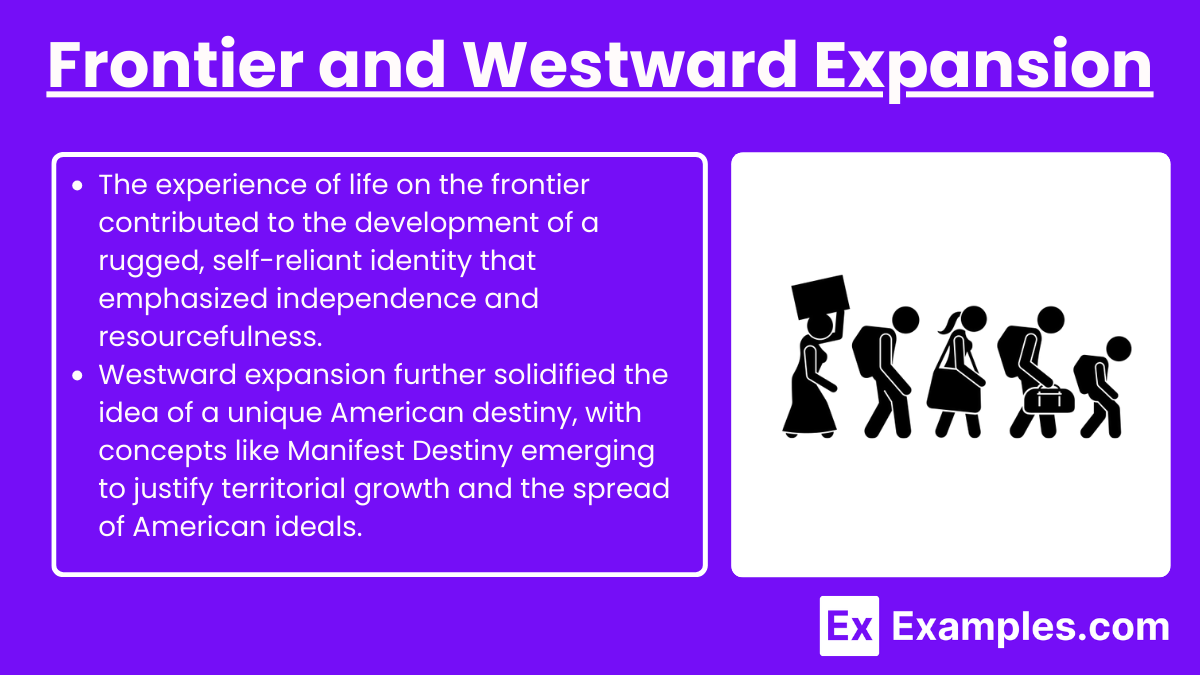
- The experience of life on the frontier contributed to the development of a rugged, self-reliant identity that emphasized independence and resourcefulness.
- Westward expansion further solidified the idea of a unique American destiny, with concepts like Manifest Destiny emerging to justify territorial growth and the spread of American ideals.
Emerging Political Ideologies
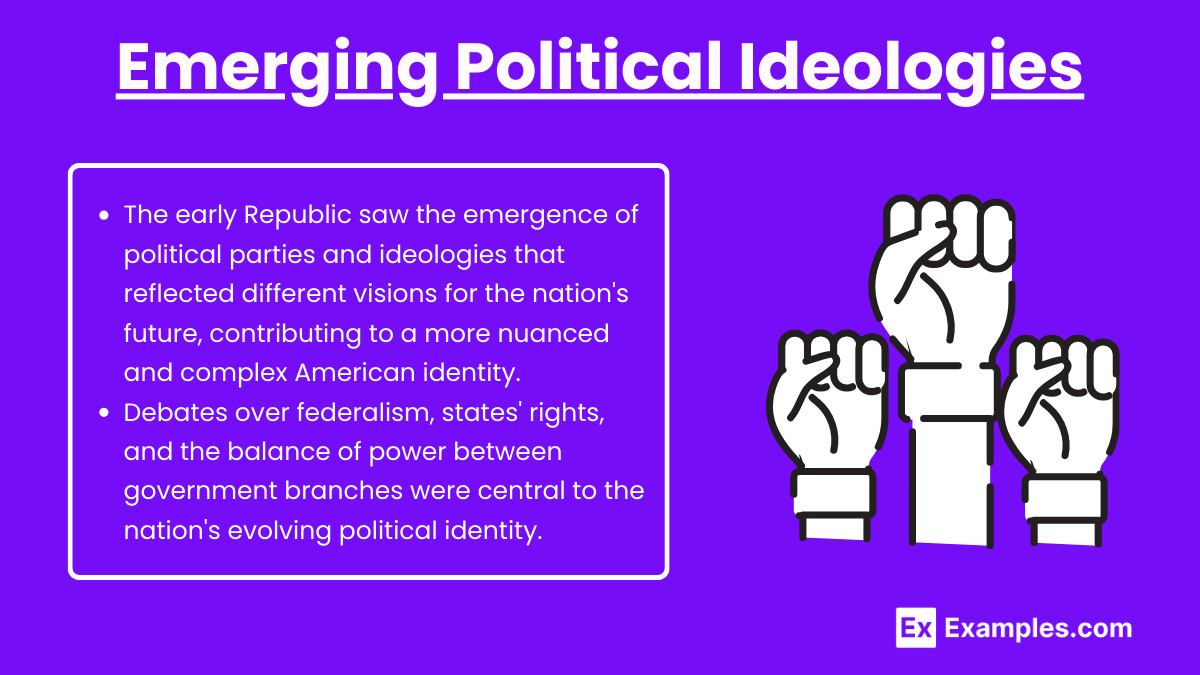
- The early Republic saw the emergence of political parties and ideologies that reflected different visions for the nation’s future, contributing to a more nuanced and complex American identity.
- Debates over federalism, states’ rights, and the balance of power between government branches were central to the nation’s evolving political identity.
Examples
1. The Declaration of Independence (1776): This document articulated the colonies’ reasons for seeking independence and laid the groundwork for an American identity centered on liberty and equality.
2.The Great Awakening: A religious revival that emphasized personal faith and equality, contributing to a sense of shared values and unity among the colonies.
3. Thomas Paine’s “Common Sense” (1776): A pamphlet that argued for independence from Britain and helped galvanize public support for the revolutionary cause.
4. The Federalist Papers (1787-1788): A series of essays that explained and defended the proposed U.S. Constitution, reflecting the emerging political identity of the new nation.
5. The concept of Manifest Destiny: The belief that Americans were destined to expand westward across the continent, shaping the nation’s identity as one of progress and exceptionalism.
Multiple Choice Questions
Which of the following was a significant factor in the development of an American identity during the colonial period?
- a) The adoption of European aristocratic traditions
- b) The influence of Native American governance structures
- c) The shared experience of resisting British policies
- d) The direct rule of the colonies by the British monarchy
Explanation: The colonies’ collective resistance to British taxation and governance policies fostered a sense of unity and a shared identity, laying the groundwork for the American Revolution.
How did the Great Awakening contribute to the development of an American identity?
- a) By encouraging colonists to return to European religious practices
- b) By promoting ideas of individualism and equality before God
- c) By enforcing strict adherence to British religious laws
- d) By diminishing the role of religion in colonial life
Explanation: The Great Awakening was a religious revival that emphasized personal faith and equality, contributing to a sense of shared moral purpose and unity among the colonists.
The concept of Manifest Destiny primarily reflected which aspect of American identity?
- a) The desire to maintain close ties with Europe
- b) The belief in a divinely sanctioned expansion across the continent
- c) The commitment to preserving Native American cultures
- d) The idea of limiting the nation’s growth to avoid conflict
Explanation: Manifest Destiny was the belief that Americans were destined to expand across North America, reflecting the nation’s identity as one of progress, exceptionalism, and territorial ambition.


